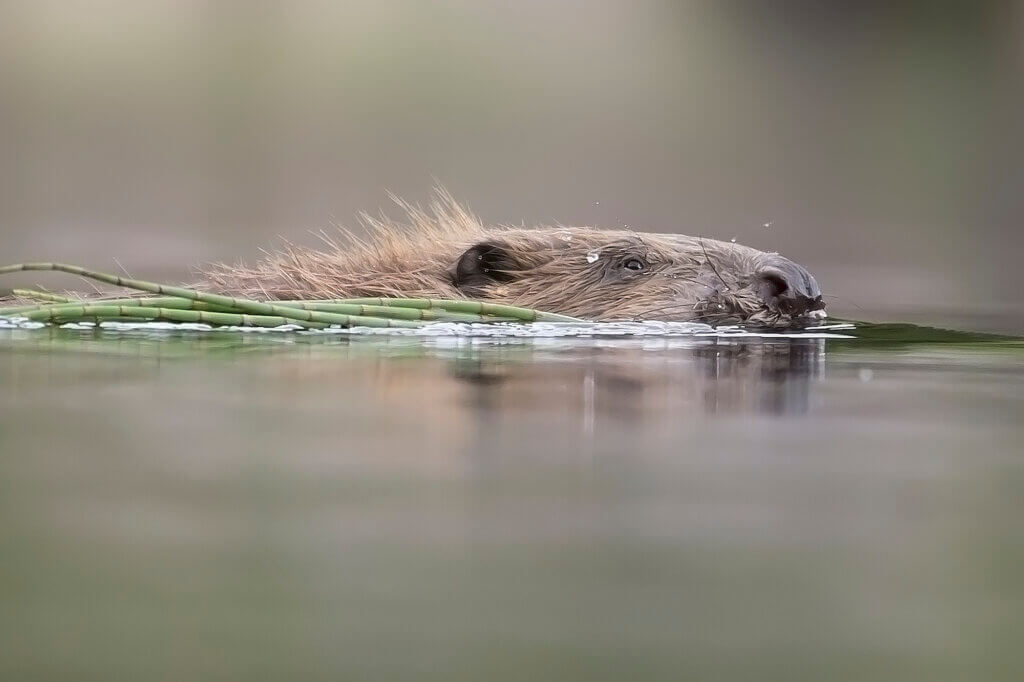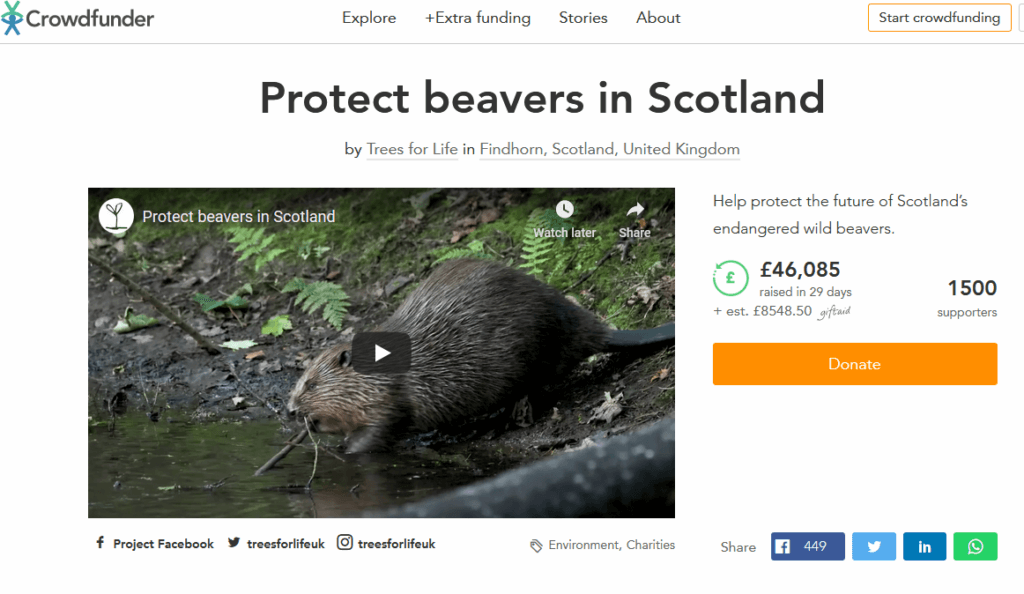
Trees for Life crowdfunder to protect Scotland’s beavers raises £60,000
A crowdfunding appeal by Trees for Life to help protect Scotland’s endangered wild beavers has raised almost £60,000 – setting the scene for a court challenge to the Scottish Government’s beaver policy, which the charity says is causing needless loss of beavers’ lives.
Trees for Life and legally specialist rewilding charity The Lifescape Project say the Government’s nature agency NatureScot is breaking the law by failing to make killing of beavers a last resort when the animals have unwanted impacts on agricultural land.
A month-long crowdfunder set out to raise at least £40,000 to cover the costs of a current judicial review of the Government’s approach. The legal challenge aims to ensure a safer future for beavers, which can be key allies in tackling the nature and climate emergencies.
The crowdfunder closed on 5 January, exceeding its target thanks to 1,500 supporters. Additional high-profile support came from television presenter and naturalist Chris Packham, whose campaigning conservation group Wild Justice donated £5,000.

“The support for our campaign to protect Scotland’s biodiversity-boosting, flood-preventing beavers has been amazing, and every donation is hugely appreciated. Public opinion clearly supports a more nature-friendly, climate-friendly and farmer-friendly approach to beaver management,” said Steve Micklewright, Trees for Life’s Chief Executive.
Beavers’ dams create nature-rich and flood-reducing wetlands. When beavers sometimes also have unwanted local impacts on agricultural land, laws governing protected species require any intervention to have the least possible impact on their conservation.
After the Scottish Government declared beavers a legally protected species in May 2019, those wanting to kill beavers or remove their dams or lodges must obtain a licence from NatureScot. Dozens of such licences have now been issued.
Because the Government says beavers cannot be relocated to new areas within Scotland – even though NatureScot has identified over 100,000 hectares of suitable habitat – the options for Tayside farmers whose crops are damaged by beavers are currently significantly limited.
A judicial review ruling in Trees for Life’s favour would ensure lethal control is a genuine last resort. Conservationists and others will be able to identify – with proper community engagement – suitable sites around Scotland to which beavers could be moved and be safe and welcome.
This could also help prevent damage to farmland, and ensure farmers are less often put in the position of having to shoot popular and endangered animals.
Trees for Life is dedicated to rewilding the Scottish Highlands. See treesforlife.org.uk.
Ends
[registration_form]
Great “stuff” as I said yesterday. I hope Trees for Life, really have a good go at NatureScot. On the whole the Scottish Government’s support for more and better measures to protect nature and wildlife in Scotland has been quite good in total, This is in stark contrast to the very rotten Government in Westminster.
Nevertheless this vicious persecution of beavers without taking the trouble to relocate them is totally, but totally unacceptable. Good luck to Trees for Life in this action I hope they take Nature Scot to “the cleaners.”
Apologies in advance as I’ve said this all before, but I think it’s too important not to reiterate whenever it’s possible to do so. The 2005 Carlisle flood cost more than 400 million quid – lots of hills and sheep around Carlisle, not many trees and back then certainly no beaver. The 2007 Gloucestershire floods (fortunately my dad’s house wasn’t directly affected although his water supply was unusable for a while) caused more than two billion quids worth of damage which might just have something to do with a large proportion of the mighty Severn’s watershed consisting of bare, sheep grazed hills. An emergency programme to establish targeted tree planting (as highlighted by the Pontbren project – https://www.woodlandtrust.org.uk/publications/2013/02/pontbren-project-sustainable-uplands-management) throughout our uplands should have begun years ago.
That then should have been accompanied by sourcing, quarantining and then bringing in beavers from parts of Europe where they would have been culled, to get to the optimum flood reducing population of them here ASAP. That in turn would mean fewer people losing homes and businesses to floodwater. The killing of any of the pitifully few beavers we have in this country is as much as anything else a humanitarian disaster. I contacted the Gloucester Citizen a few weeks ago to suggest it takes this issue to its readership – no joy so far. The conservation organisations need to stop worrying about ticking off the sheep industry or grouse shooters and instead worry about families losing their homes to water and mud, and show leadership on this. When it comes to opportunities for restoring biodiversity surely this is the lowest hanging fruit there is and it’s still being messed up.